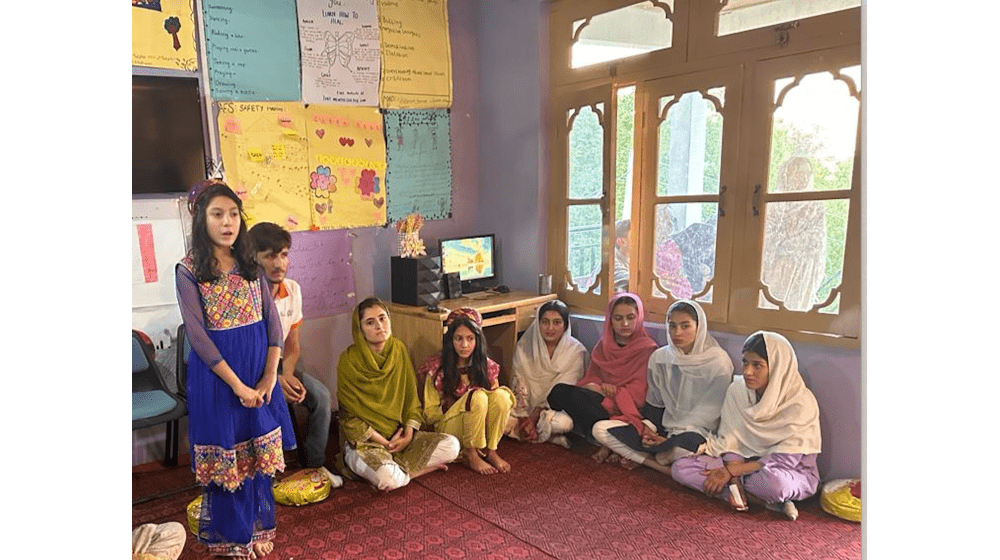I felt utterly heartbroken during my last field mission, which took me to a Union Council near Peshawar, a community of 65,000 people. I discovered that there was not a single school for girls, whereas there are six schools for boys. This might be insufficient as well, but the absence of even one school for girls highlights the gender discrimination they face.
When I inquired about the reasons why the community had not advocated with the authorities to establish a school for girls, community leaders explained that the common practice is for the community to donate a piece of land, and the provincial government would build the school and provide staff and equipment as needed. When I further inquired why the community had not donated land for a girls’ school, their excuse was shocking: “Our community is becoming more commercial, and land prices are increasing; therefore, we cannot afford to donate any more land.”
This mindset reveals how communities compromise the rights of girls and the value of investing in their education, all for the sake of short-term monetary gains. I don’t, of course, mean to play the blame game but rather to highlight the community’s mindset, which is unfortunately not the exception in Pakistan, I am sure.
A girl who does not attend school typically ends up in child marriage and is likely to have a larger family, facing lifelong health problems. She becomes an economic burden on her family and society. Early marriage is the primary cause of lifelong health conditions, increased fertility, and inadequate economic conditions. This is a global pattern and a key element of UNFPA’s proposed trajectory model for 10-year-old adolescent girls. Educated mothers raise healthy children and happy families. Educated girls have better prospects in life than their uneducated counterparts. Unfortunately, this community fails to realize the importance of educating girls and the potential gains of providing schools for them. They miss out on these benefits because a small piece of land cannot be made available.
It is crucial for local communities to update their beliefs and values regarding the immense benefits that can be gained from investing a small amount of funds in the education, skills, and opportunities for girls. It is important to understand how girls feel about their neighborhood, families, and community when they live in a society that deprives them of educational opportunities while favoring boys. This not only limits their potential but also leads to a lifetime of misery.
People’s awareness of the importance of girls’ education needs to focus on how a young girl will feel toward her family when she realizes that education was the first step in the journey of many prominent Pakistani women leaders like Fatima Jinnah, Benazir Bhutto, Nafis Sadik, and many others.
Pakistani girls are just like any other girls around the globe, born with boundless potential. They come into the world with all their rights: to learn and thrive, to lead, inspire, and change the world. The International Day of the Girl for 2023 marks the infinite possibilities of the world’s 600 million adolescent girls, including Pakistanis. They represent a generation of innovation and action, leading the call for justice and creating a world that works for everyone. However, the situation in the country demands a faster, firmer, and bolder coordinated response so that every girl in Pakistan grows up secure in the knowledge that her body is her own. She should not be exposed to harmful practices, including child marriage and dropping out of school. She must be empowered to realize that her future is hers to shape, that she can go to school, access the healthcare she needs, and live free from violence.
In her statement on the International Day of the Girl, UNFPA Executive Director Dr. Natalia Kanem said that adolescence lays the foundation for a successful adulthood. Yet child marriage, adolescent pregnancy, and gender-based violence derail the lives of far too many girls. Increased, targeted investments in sexual and reproductive health services and comprehensive sexuality education equip adolescent girls with the tools to make informed decisions about their bodies and lives, empowering them as agents of change and future leaders.
UNFPA collaborates with the Government of Pakistan to support adolescent girls in forging a healthier, brighter future through life skills-based education and advocacy to prevent child marriage and other harmful practices.
My greatest aspiration is that as we approach the 2030 deadline for the Sustainable Development Goals, we should scale up our efforts to ensure that every adolescent girl can exercise her rights and choices, realize her fullest potential, and build the future she envisions for herself. Let us remove the barriers between her and that better future and let her lead the way. Bridging the gender gap, ensuring access to education and health services, and providing girls a life free of violence are the first steps on the long path that Pakistan needs to nurture, to ensure girls are on an equal footing with their counterparts in developed countries and can shine and lead.


